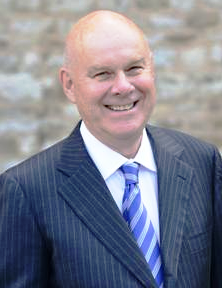| View this email online if it doesn't display correctly |
| |  |
To see oursels as ithers see us
The studio is a stark rectangular cube in an old warehouse, a metal framed window at one end and a rough concrete beam across the ceiling. Stacked on the floor against the side and hung on the walls are sketches and preparatory paintings of youthful nudes, older ladies with jewelled necks, men looking pleased with themselves, the ugly and the beautiful randomly side by side. From where I sit, on a platform supported by upturned plastic crates, I can see slate rooves. Only if I stand up and peer round at an angle do I glimpse the new London skyline and the bulbous rear of Norman Foster’s Albion Riverside apartments like a spaceship landed on extendable legs. We’re on Lavender Hill not far from Clapham Junction.
In front of me stands Rosalie behind her easel, a bit chatty but mainly creasing up her brow in concentrated assessment. She looks, casts her eye from the canvas to me and then back again before making confident strokes with a brush she holds two thirds up its handle. From time to time she takes a mirror and, holding it at right angles to her eye, checks her work by seeing a reverse image of it. Then, resting her hand on a maulstick, makes adjustments.
I must lower my chin, look to her left and hold my head up straight, a bit more to the right because I have a spinal tilt acquired over the years. It’s therapeutic and, I imagine, a bit like having your nails done, when some other person attends so exclusively and committedly to your person. And in this pose I look at her as much as she looks at me so that at the end of three hours I know her in such detail that, had I the artistic skills, I could paint her with a thoroughgoing depth of understanding.
I feel self-indulgent enjoying all this attention? Then the sudden crisis of confidence: what a wreck I am, how withered on the bough, and how particularly spotty today. How self-deceived have I been all this while about my body image? But we agree this is art and in the vanity department it’s good to bring neutrality to the exercise. We are at once both forgetting and celebrating the self, and I point out (because we have been having some very searching theological discussion) that Rosie’s task is potentially of the highest moral order because she’s engaged in seeing the other with self-giving attention. Of course she could ruin the moral enterprise by painting to flatter, in order to earn more commissions, and to become a society portraitist commanding high prices. But she’s more serious than that and I look forward to our next experiment in the meaning of life.
|
| |
|
|
|
| | |
|
| |
|
|
|
| | Services
—
Tuesdays & Thursdays
12.15pm Lunchtime Eucharist
—
Sunday
10.30am 6th March Mothering Sunday
Preacher: Dr Daisy Dunn, writer and classicist
Music:
Josef Rheinberger, Mass in Eb ‘Cantus Missae’ Op. 109
Charles Villiers Stanford, Beati quorum via, Op. 38, No. 3 |
| | Other forthcoming Events
— Check out our Facebook page: |
| | Forthcoming Concerts
Saturday 5th March 8pm Hertford Bruckner Orchestra
Mozart, Overture to "Don Giovanni" Bizet, Symphony in C Beethoven, Piano Concerto no 3 in C minor £7.50/£5 at Oxford Playhouse or on the door.
— Monday 7th March 8pm
The Oxford University Sinfonietta Prokofiev – Symphony No. 1 Shostakovich – Piano Concerto No. 2
Stravinsky – Pulcinella (Complete)£12, £6 students/ £10, £5 students
In Advance (ticketsource.co.uk/ousinf)
—
Wednesday 9th March 7.30pm
Hertford College Orchestra, Wind Band and Jazz Band Dvorak Symphony 9, Whitacre "October" & "Come fly with me" Free entry with a retiring collection
______________________________________________________________________________________________________________
|
| | Poetry corner —
Storm on the Island
We are prepared: we build our houses squat,
Sink walls in rock and roof them with good slate.
This wizened earth has never troubled us
With hay, so, as you see, there are no stacks
Or stooks that can be lost. Nor are there trees
Which might prove company when it blows full
Blast: you know what I mean - leaves and branches
Can raise a tragic chorus in a gale
So that you listen to the thing you fear
Forgetting that it pummels your house too.
But there are no trees, no natural shelter.
You might think that the sea is company,
Exploding comfortably down on the cliffs
But no: when it begins, the flung spray hits
The very windows, spits like a tame cat
Turned savage. We just sit tight while wind dives
And strafes invisibly. Space is a salvo,
We are bombarded with the empty air.
Strange, it is a huge nothing that we fear.
- Seamus Heaney (13 April 1939 – 30 August 2013) Image: Ian Phillips, “Little Ross, Kirkcudbright Bay”, Linocut, 2011
Last night saw Simon Armitage’s second public lecture as Oxford Professor of Poetry. His title this time was ‘Mind the Gap: Omission, Negation and "a final revelation of horrible Nothingness - "’, and dealt with absence in its many forms in poetry. From the blank space of the page around the poem; to gaps between individuals’ experience; absence; loneliness; and the various functions of Emily Dickinson’s famous line-ending dashes – Armitage examined the function of negation. He chose this poem by Seamus Heaney as an illustration. Does poetry, too, provide an ear-trumpet through which we ‘listen to the thing you fear / Forgetting that it pummels your house too’? That final line is, of course, the crux: the ‘huge nothing’ is the thing that we must keep at bay. Professor Armitage’s lecture will appear on this site in due course: http://www.ox.ac.uk/news/arts-blog/listen-simon-armitages-first-lecture-professor-poetry
|
|
| |
| |
|